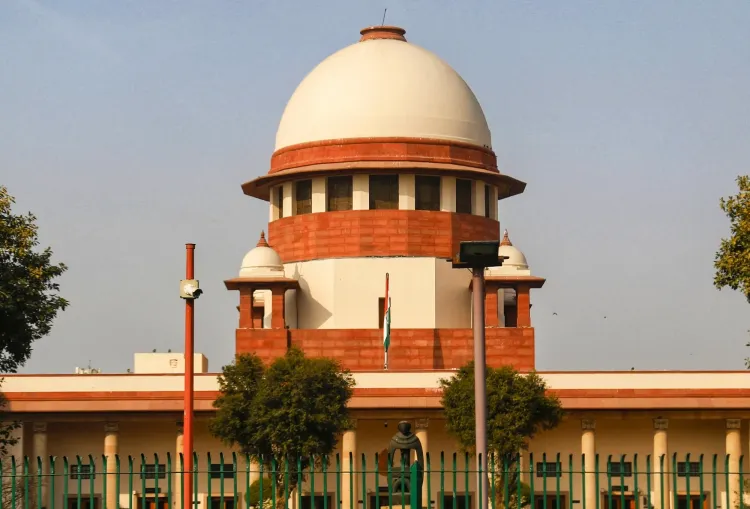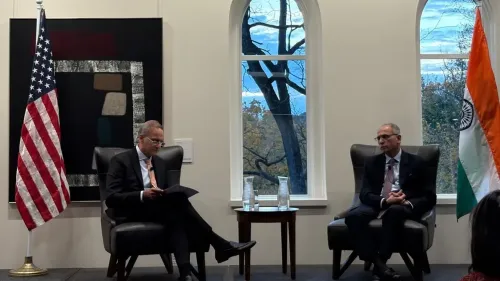Did the SC Discharge a Hostel In-Charge Accused of Abetting a Student's Suicide?

Synopsis
Key Takeaways
- The Supreme Court discharged the hostel in-charge.
- No valid grounds for abetment charges were found.
- Context of reprimand was critical in the ruling.
- The complainant did not appear in court.
- Importance of safeguarding student welfare highlighted.
New Delhi, June 1 (NationPress) The Supreme Court has discharged a Tamil Nadu school hostel in-charge who faced accusations of abetting a student's suicide.
A bench comprising Justices Ahsanuddin Amanullah and Prashant Kumar Mishra addressed an appeal contesting the Madras High Court's decision, which had turned down the plea to discharge the appellant from charges of abetment to suicide under Section 306 of the Indian Penal Code.
The counsel for the appellant argued before the apex court that the appellant had reprimanded the deceased, prompting him to lock himself in a room and subsequently hang himself with a nylon rope. It was claimed that the appellant's reaction, as the correspondent and hostel in-charge, was appropriate and that the scolding was merely a parental caution aimed at preventing the deceased from repeating the offense and maintaining order within the hostel.
Additionally, it was stated that there was no personal animosity between the appellant and the deceased, and the reprimand was issued solely based on a complaint from another student.
The appellant was implicated in an FIR lodged by the state police CB-CID for offenses punishable under Sections 306 IPC (abetment to suicide) and 174 of the Code of Criminal Procedure. However, charges were specifically framed against him under Section 306.
During the proceedings, the counsel for the Tamil Nadu government conceded that there seemed to be no substantial basis for charging the appellant with abetment to suicide.
The Supreme Court noted that despite valid notification, the complainant, the father of the deceased student, failed to appear before the court.
"After reviewing all aspects of the case, we find sufficient grounds for interference. As articulated by the senior counsel for the appellant, it is inconceivable that a mere reprimand, particularly one based on another student's complaint, could lead to such a tragic outcome as the student taking his own life," the court remarked.
The apex court emphasized that such reprimanding was minimal for a correspondent to ensure that the complaint against the deceased was acknowledged and necessary corrective actions were taken.
After considering the facts, the Supreme Court concluded that there was no mens rea that could be attributed to the appellant regarding the deceased's suicide.
In allowing the appeal, the court ordered that "the charge against the appellant under Section 306 of the IPC in relation to FIR No.01/2024 registered by CBCID is hereby quashed. The appellant is therefore discharged in this matter."









